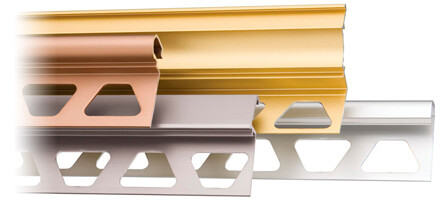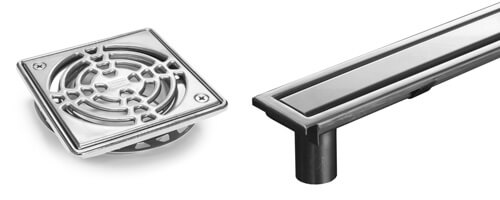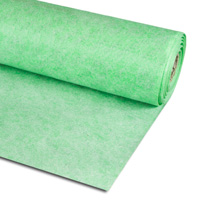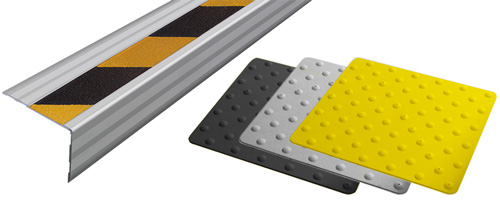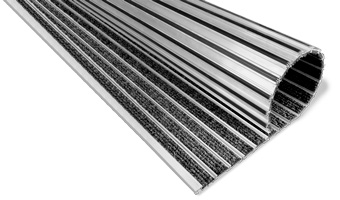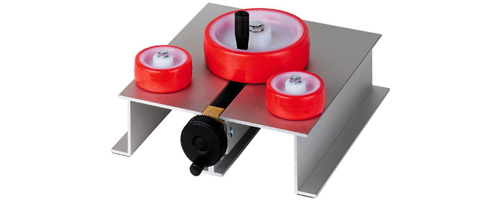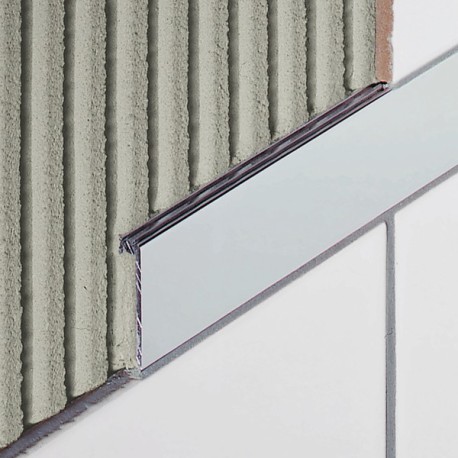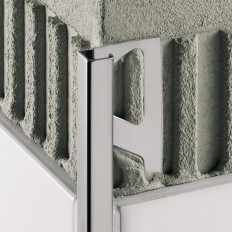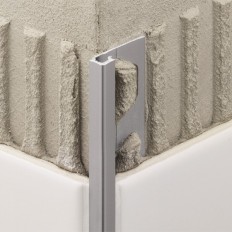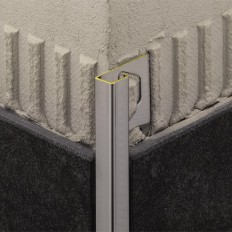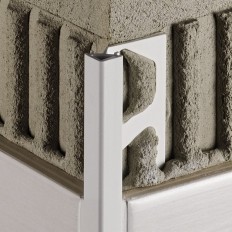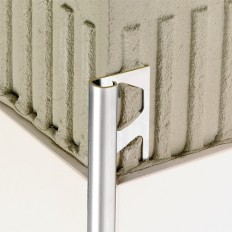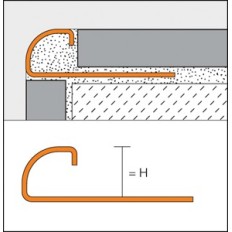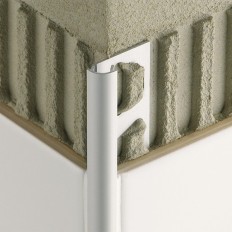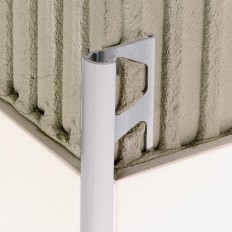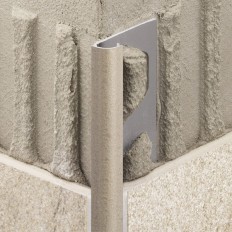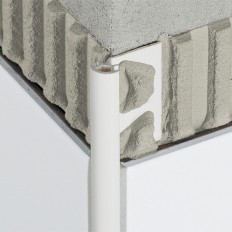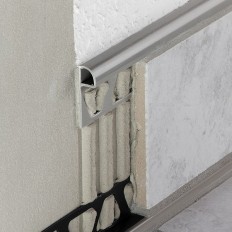Schlüter DESIGNLINE is a border profile for producing decorative designs in interior wall coverings. The range of profiles can be combined with the corresponding Schlüter RONDEC or-QUADEC profiles for external wall corners.
Schlüter DESIGNLINE has a 25 mm wide visible surface area and a thickness of 6 mm. Therefore, the profile is suitable for use with tiles from a thickness of 6 mm. It can be used with thicker tiles by building up the setting material behind the profile.
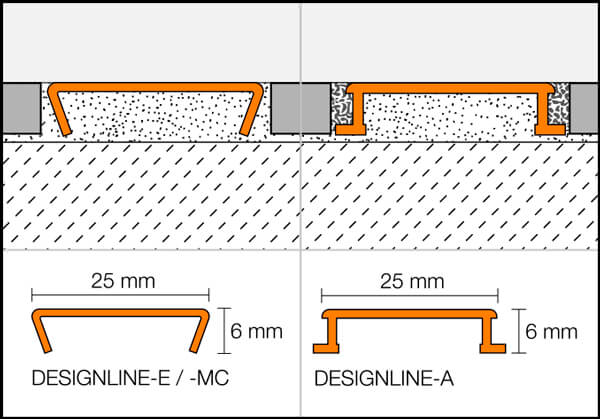
Material
Schlüter DESIGNLINE is available in the following materials:
- E = Stainless steel V2A, polished (material no. 1.4301 = AISI 304)
- EB = Brushed stainless steel
- ES = Structured stainless steel
- MC = Chrome plated brass
- AE = Anodised aluminium
- AK = Satin copper/bronze anodised aluminium
- AM = Satin brass anodised aluminium
- AT = Satin titanium anodised aluminium
- ACG = Polished chrome anodised aluminium
- AKG = Polished copper/bronze anodised aluminium
- AMG = Polished brass anodised aluminium
- ATG = Polished titanium anodised aluminium
- ACGB = Brushed chrome anodised aluminium
- AKGB = Brushed copper/bronze anodised aluminium
- AMGB = Brushed brass anodised aluminium
- ATGB = Brushed titanium anodised aluminium
Material properties and areas of application:
Schlüter DESIGNLINE is available in a wide variety of materials and finishes. In special cases, the suitability of the profile must be verified, based on the anticipated chemical or mechanical stresses. The information provided below is intended as a general guideline.
Schlüter DESIGNLINE-E is made of roll formed stainless steel V2A (material no. 1.4301 = AISI 304). Stainless steel is particularly well suited for applications that, in addition to heavy mechanical stresses, require resistance to chemicals such as acidic or alkaline media and detergents. Even stainless steel is not resistant to all chemical stresses, and may be affected by hydrochloric and hydrofluoric acid or certain chloride and brine concentrations. In certain cases, this also applies to seawater pools. Special anticipated stresses should therefore be verified in advance.
Schlüter DESIGNLINE-MC (brass with chrome finish) is particularly well suited for wall coverings, for example to match chrome-plated fittings in bathrooms. Visible surfaces should be protected against abrasion. Mortar and grouting material should be removed immediately.
Schlüter DESIGNLINE-AE/ -ACG/ -ACGB/ -AM/ -AMG/ -AMGB/ -AK/ -AKG/ -AKGB/ -AT/ -ATG/ -ATGB (anodised aluminium): The aluminium features an anodised finish that retains a uniform appearance during normal use. Surface areas must be protected against abrasion or scratching. Aluminium is sensitive to alkaline media. Cementitious materials, in conjunction with moisture, become alkaline, which may result in corrosion depending on the concentration and length of exposure (aluminium hydroxide formation). For this reason, remove mortar or grouting material immediately from all visible areas and do not cover freshly installed coverings with foil. In addition, ensure that the profile is solidly embedded in the setting material to prevent water from accumulating in small cavities.
Installation
- Schlüter DESIGNLINE may be used with tiles that are 6 mm thick or greater.
- Set tiles up to the area where Schlüter DESIGNLINE is to be installed as a decorative strip. Apply a sufficient amount of tile adhesive to this area or to the back of Schlüter DESIGNLINE and push the profile down until its surface is flush with the tile.
- Set the adjacent row of tiles.
- Set the tile to the lateral joint spacer, which ensures a uniform joint of 1.5 mm. In case of stainless steel profiles, leave a space of approximately 1.5 mm. Fill joints completely with grout.
- Use suitable materials and tools for the sensitive surfaces to avoid scratches or other damage. Residue of mortar and tile adhesive should be removed immediately, especially from aluminium finishes.
Maintenance
The profile requires no special maintenance or care. Do not use abrasive cleaning agents on the sensitive surfaces.
Damaged anodised surfaces can be restored with paint. The surfaces of stainless steel profiles can be polished with commercial chrome-polishing products. Stainless steel surfaces exposed to the environment or aggressive substances should be cleaned periodically using a mild household cleaner. Regular cleaning maintains the neat appearance of stainless steel and reduces the risk of corrosion.
All cleaning agents must be free of hydrochloric and hydrofluoric acid. Avoid contact with other metals, such as regular steel, to prevent corrosion. This also includes installation tools such as trowels or steel wool, e.g. for the removal of mortar residue. We recommend the use of the stainless steel cleaning polish Schlüter CLEAN-CP.

